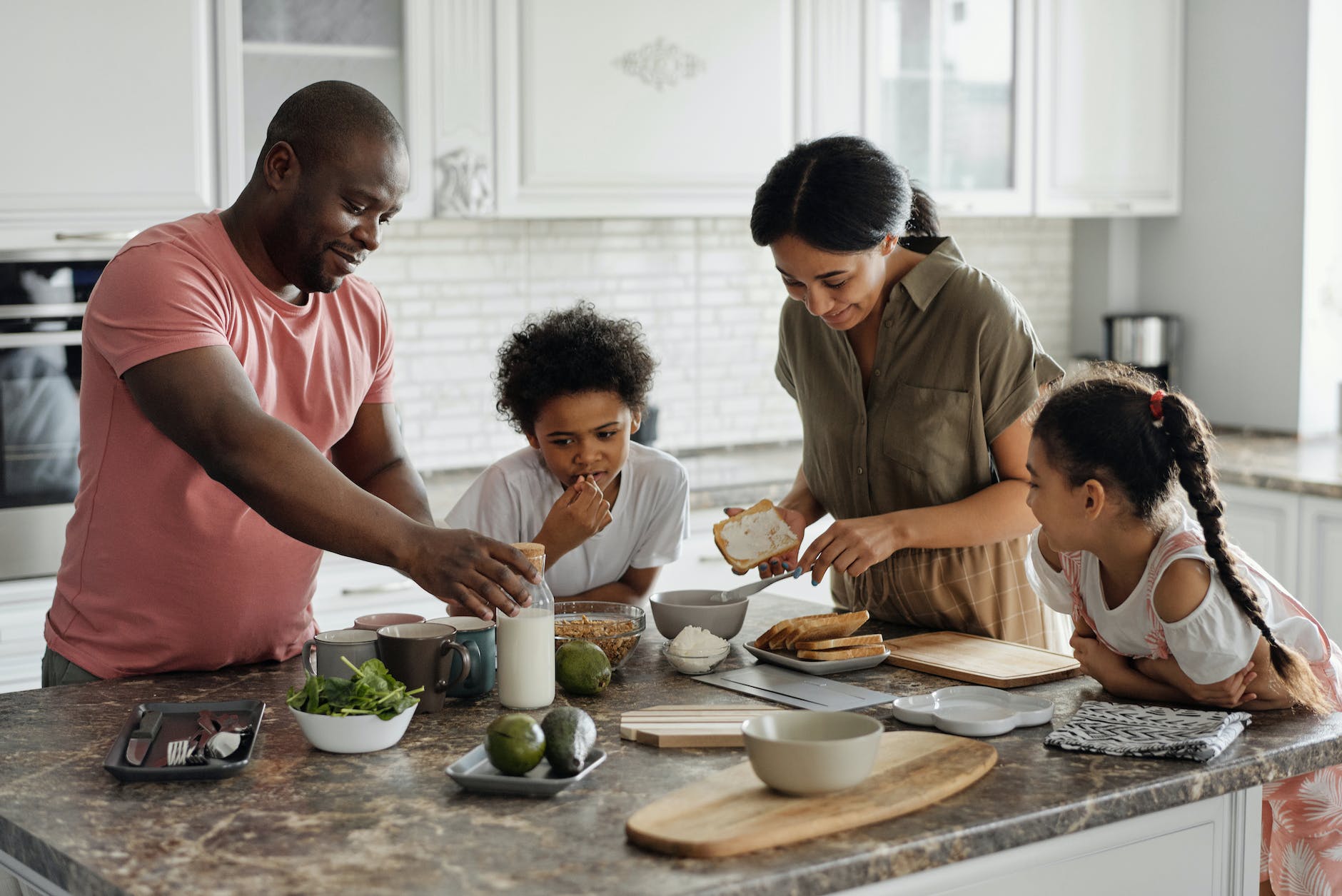
Photo by August de Richelieu on <a href="https://www.pexels.com/photo/family-making-breakfast-in-the-kitchen-4259140/" rel="nofollow">Pexels.com</a>
One of the most important aspects of being a foster carer is having the ability to communicate well with the children in your care. Just as each child has their own personality, they also have different styles of communication. Some children will immediately bond with you whilst others may take a bit of time to bridge a communication gap that hinders that all important connection.
One thing many career foster carers have found is that food is a common denominator among all humans, no matter their age. They suggest getting an untalkative child to do a bit of cooking or baking with you. This is a common intersection in everyone’s life. Although we don’t all like the same foods, most of us can agree we love to eat!
What the Foods They Love and Foods They Hate Have to Say
When you went through the fostering process during those training sessions, it was impressed on you just how important communication is when working with foster children. There are times when we have an incomplete background on the children in our care. Sometimes, all it takes is making something together in the kitchen to find out about the foods they truly love. In fact, even the most untalkative children will gladly tell you about their favourite goodies once you get them helping in the kitchen. Even if they aren’t vocal, you can often get a ‘gut level feeling’ just by watching the expression on their faces when they handle something they enjoy and something else they absolutely abhor.
Ask Them for Suggestions for the Weekly Menu
You will find that cooking and baking can open the door to conversations about the child’s past without stressing them out. As noted above, try to keep the conversation open but don’t force them to talk if they are not in the mood. Even so, don’t worry. What you can do is ask them what they think you should cook for dinner tonight. Or maybe you can ask them what their favourite food is. Don’t be surprised if they say pizza or spaghetti. That seems to be the leading favourite food in today’s youth.
The Art of Opening a Conversation While Cooking
In the end, it pays to understand that conversations can’t be forced, and sometimes nonverbal communication says so much more than words ever could. From the expression on their faces to the way they tense when talking about something they don’t want to address, body language can bridge the communication gap easier than you ever imagined.
If they aren’t forthcoming when you ask if they like this food or that, just watch their faces and they’ll surely clue you in. Just remember that even though talking about food is a good place to start, when they do start talking, try not to let the conversation get too heavy. You can often learn more by just watching their expressions than you can with a thousand words. In the meantime, have fun cooking with your new apprentice chef!


